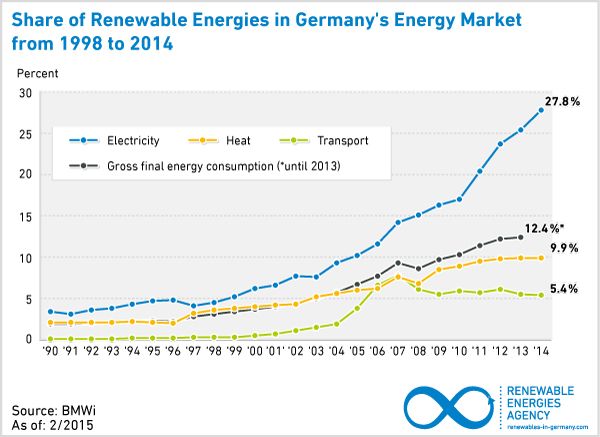20. Insurance against rising costs
 Some caution against a rapid expansion of renewable energies, inter alia arguing with supposedly spiraling costs. However, the real and future costs of conventional energy sources have to be taken into account for a balanced analysis of the economic value of renewable energy.
Some caution against a rapid expansion of renewable energies, inter alia arguing with supposedly spiraling costs. However, the real and future costs of conventional energy sources have to be taken into account for a balanced analysis of the economic value of renewable energy.
The Renewable Energies Agency (AEE) has compared various studies, which widely differ in their forecasts, inter alia because some assume fossil fuel prices below levels already reached in this decade. For instance, some studies assume crude oil prices to remain below the 2011 and 2012 crude oil price levels for the next ten years. Consequentially, the costs of a renewable energy supply appear to be comparatively higher, when studies understate fossil fuel and CO2 emission prices.
Against the backdrop of a fossil energy supply that is characterized by dwindling resources and dependence on global political developments, the promotion of renewable energies can be reliably forecast.
Renewable energies have to compete with a heavily subsidised conventional energy industry. According to the International Energy Agency (IEA), global subsidies for fossil fuels rose to $ 544 billion in 2012. On the other hand, government support for renewable energy only amounted to $ 101 billion.

Social Media